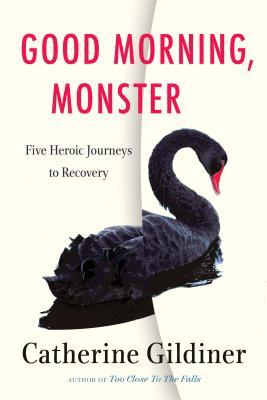
Good Morning, Monster: Five Heroic Journeys to Recovery
Catherine Gildiner
About the Author

Catherine Gildiner
Questions & Answers
The concept of "heroic journeys" in the context of psychological therapy relates to recovery and personal growth by highlighting the transformative experiences individuals undergo. These journeys, akin to those in mythological tales, involve facing and overcoming significant challenges, which can be internal or external. In therapy, this translates to patients confronting their traumas, fears, and limitations, much like heroes facing trials. The process of recovery becomes a quest for self-discovery, where individuals learn from their experiences, develop resilience, and grow stronger. This journey often requires courage, perseverance, and the guidance of a therapist, who acts as a mentor or guide. Through these heroic journeys, individuals can transform their lives, gain a deeper understanding of themselves, and achieve personal growth, leading to a more fulfilling and empowered existence.
The therapeutic relationship is foundational in the healing process, serving as a safe space for patients to explore their thoughts and feelings. Therapists adapt their approaches to cater to unique patient needs by employing various techniques and theoretical orientations. They must establish trust, empathy, and rapport to facilitate open communication. This may involve using cognitive-behavioral therapy for those with anxiety or depression, Gestalt therapy for present-moment awareness, or psychodynamic approaches for uncovering deeper issues. Therapists also consider cultural, social, and personal factors, adjusting their methods to ensure the patient feels understood and supported. Flexibility and a willingness to learn from each patient's experiences are crucial for effective therapy.
The various forms of trauma, like intergenerational trauma, sexual abuse, and neglect, profoundly impact individuals' development and healing. Intergenerational trauma, stemming from historical events like residential schools, leads to a cycle of abuse and neglect, affecting self-image and relationships. Sexual abuse can cause emotional numbing, trust issues, and triggers, while neglect can lead to feelings of abandonment and low self-esteem. These traumas disrupt normal psychological development, causing difficulties in forming relationships, regulating emotions, and developing a sense of self. Healing involves acknowledging and processing these traumas, often with the help of therapy, which can help individuals develop coping strategies, improve self-esteem, and rebuild trust.
The five main characters in "Good Morning Monster" demonstrate several key elements contributing to resilience and overcoming adversity:
-
Personal Strength: Each character possesses a strong will and determination. Laura's pluck, Danny's stubbornness, Peter's forgiveness, Alana's endurance, and Madeline's resourcefulness are central to their resilience.
-
Attachment and Support: Positive relationships and attachment to others play a crucial role. For Laura, the M.A.S.H. character served as a substitute parent; for Peter, his sister's love and the piano provided comfort; and for Madeline, her father's support was vital.
-
Coping Strategies: The characters developed unique coping mechanisms. Laura used the M.A.S.H. character as a role model, Peter created a fantasy friend, and Alana used dissociation to deal with trauma.
-
Emotional Regulation: The ability to manage emotions is vital. Laura learned to express her true feelings, Peter gained self-esteem, and Alana learned to integrate her alternate personalities.
-
Learning from Experience: Reflecting on past experiences and learning from them is crucial. The characters used their past to inform their present actions and decisions.
-
Seeking Help: Seeking therapy and support from others is a significant factor in their recovery. The therapeutic process allowed them to confront their issues and develop healthier coping strategies.
The concept of "you get what you give" in relationships underscores the importance of reciprocal interactions. In healing, this idea suggests that individuals must first care for themselves to be able to offer genuine care to others. It influences the healing process by promoting self-awareness and self-compassion, crucial for overcoming past traumas and building a strong sense of self. By recognizing the patterns of giving and receiving in their relationships, individuals can identify areas for growth and change. This self-reflection can lead to healthier connections, as individuals learn to set boundaries, communicate effectively, and seek mutually beneficial interactions. Ultimately, embracing the concept of reciprocal relationships fosters emotional resilience and the ability to form meaningful, supportive bonds.